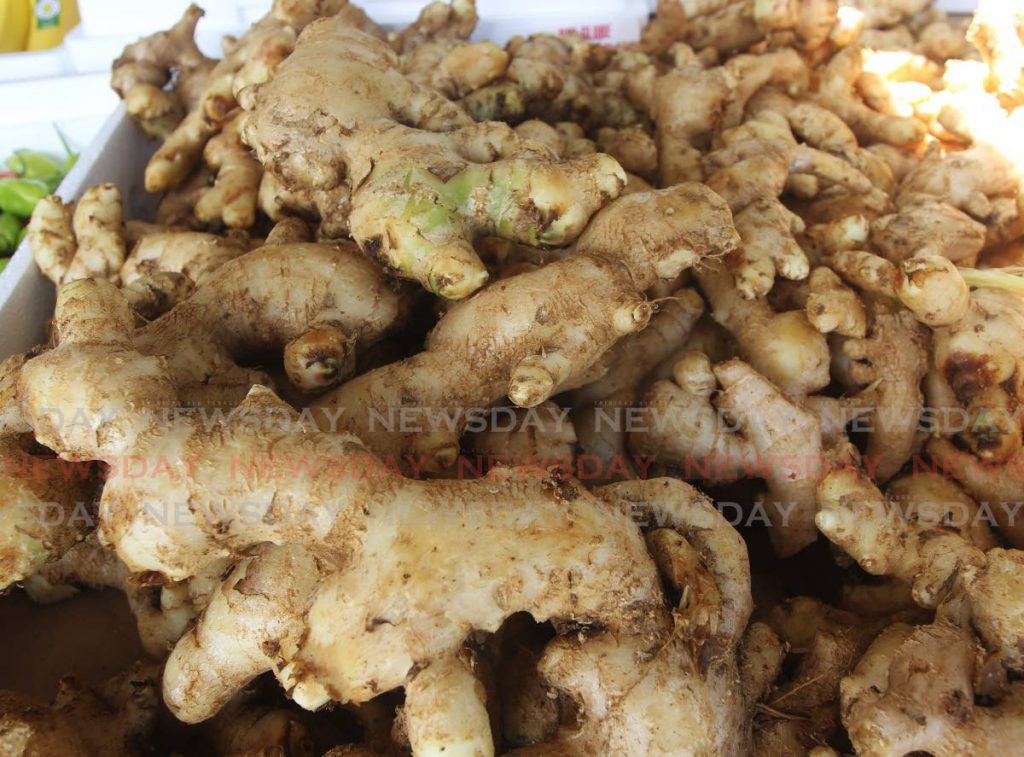St Vincent produce slow in coming to Trinidad and Tobago

WHILE Government officials have assured that produce from St Vincent and the Grenadines, including dasheen, yams and ginger, will still be provided despite the eruption of the La Soufriere volcano, sailors and merchants at the Caricom Jetty in Port of Spain were not optimistic cargo will be coming soon.
Kenrick Glasgow, who transports produce and foodstuffs to St Vincent and the Grenadines and back, told Newsday the last shipment was two Mondays ago.
“Nothing is coming in,” he said.
“We may get more goods next Monday or Tuesday, but we will have to wait and see. It is not that the goods are not there, but it is to get it. It is in the ground, under a pile of ash,” Glasgow said.
Last week, the port was flooded with people wanting to send relief items for friends and relatives in St Vincent and the Grenadines.
“It is more goods going out than coming in,” Glasgow said. “It has been over four days this was happening this way."
Monica Lynch and her business partner Sherma Moore told Newsday they spent an entire day trying to get their goods of cheese, water, dried foods toilet paper and other basic amenities, on any vessel.
“We came in early and thought it would be enough time to get in,” Moore said. "We have pallets because we do sole trading also and we trade with them every week.”
Moore said since the volcano erupted, the three ships which usually transported goods from TT to St Vincent and the Grenadines and back – the Admiral Bay I, II and III – were limited to a one-vessel rotation.
Newsday was told the three ships went back to St Vincent, but on Friday only Admiral Bay II returned, and it returned late because of another bottle neck at the St Vincent docks.
“It wasn’t getting enough space to dock in St Vincent because of the amount of ships that came in from other islands,” Moore said.
Newsday was told merchants wanting to transport goods to St Vincent would go to the jetty and work with Customs and Excise officers to get their items on the larger boats.
However, with the limited number of larger transport boats coming from, and going to St Vincent, people are soliciting the services of smaller boats which are going to the island.
“Right now there are four small boats loading to carry cargo to St Vincent,” said Brother Joseph, captain of the Donna Lila, one of the four tugboats sailing to St Vincent.
Joseph said boat captains would normally charge about $600 to transport one pallet, but the price was reduced by $200.
“That is our contribution,” he said.
On Monday, St Vincent's deputy Prime Minister Montgomery Daniel told reporters the eruption affected most livelihoods in the northern part of the island, including banana farming, with ash and lava flows affecting the movement of people and goods.
He said whole crops of breadfruit, coconuts, mangoes, soursop as well as plantain and bananas, in the areas close to the volcano, were all destroyed.
Ash fall in some areas was so deep that it affected all the vegetation in the area, including arrowroot and other root crops, he added.
“Whether it is arrowroot, yams, dasheen, ginger, you name it, all have been lost and not a single blade of grass can be seen on these farms, so that it’s an area that has been levelled all across the farms,” Daniel told reporters in St Vincent.
The island's Agriculture Minister, however, was optimistic that St Vincent would be able to make its shipments, even as the volcano continues to spew lava and ash across the country.
TT's Agriculture Minister Clarence Rambharat also assured that if there was a disruption in the supply of root crops from St Vincent, local production would be able to fill the gap.


Comments
"St Vincent produce slow in coming to Trinidad and Tobago"